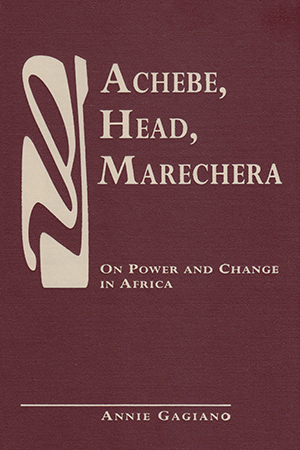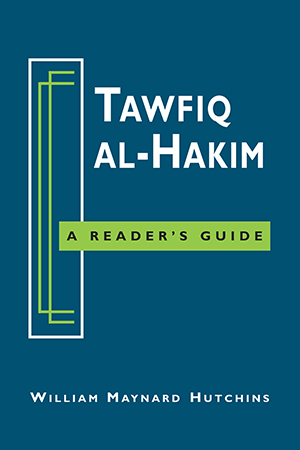African Literature
Because of, and at times in spite of, the distinct quality of Portuguese colonial policy, an original and vibrant lusophone literature exists today in Africa. Burness introduces the More >
The first book in a trilogy that continues with Mother Spring and Birth at Dawn, this naturalistic allegory is about two Arabic-speaking police officers who set out in the Atlas Mountains in More >
Setting his novel during World War II, Chraïbi opens the door on the protected and well-to- do world of an Arab woman whose role in society is restricted to that of wife and mother. At More >
The dehumanization of the Arabs who emigrated to "Mother France" is the subject of Chraïbi’s second novel, echoing Simple Past. This time, however, the focus is more on More >
It is the 26th day of Ramadan in the year 610, and a handsome man named Muhammad is meditating in a cave on Mount Hira. Fear grips him as he tries to sort out the visions and voices washing More >
After many years abroad, Brahim, the author of stories about a detective (alter-ego) named Ali, returns to Morocco with his pregnant Scottish wife and two sons. Soon to join them are his More >
The final volume in a trilogy that includes The Flutes of Death and Mother Spring, Birth at Dawn extends to the eighth century the story of the arrival of Islam in Morocco and Algeria. First More >
Beginning with an epilogue set in the present, this novel quickly moves back to the time of the generation after Muhammad—a time when North Africa, the home of the Berber peoples, was More >
In this witty and ironic reversal of the typical colonial travelogue, Dadié recounts the journey of a bemused African traveler who settles in Rome, continuing his inquiries into the More >
Concentrating on issues of power and change, Annie Gagiano's close reading of literary texts by Chinua Achebe, Bessie Head, and Dambudzo Marechera teases out each author's view of More >
Issues of racial discrimination, imperialist exploitation, and accuracy of observation have long interested Conrad’s critics. As a European writing about imperialism in exotic lands, More >
Although he was a staunch supporter of French colonialism, Paul Hazoumé in his realistic, sweeping narrative captures the customs and traditions—the soul—of Dahomey. This More >
A collection of forty-two poems that depict the pain and pathos, the political and personal struggles that marked South Africa during apartheid. House is acutely sensitive to the sometimes More >
Tawfiq al-Hakim (1898-1987) dedicated much of his long life to a fruitful attempt to advance the fortunes of twentieth century Arabic literature by writing it. This guide to his work More >
A woman abandons her newborn baby in a ditch. Soon discovered, the corpse arouses in the local peasants an intense desire to bring the killer to justice—and gives them the excuse to More >



![Mother Comes of Age [a novel]](/uploads/66fae9f03bf9e.jpg)
![Muhammad [a novel]](/uploads/66faea0baa7f2.jpg)
![Inspector Ali [a novel]](/uploads/66fae9bc61952.jpg)
![Birth at Dawn [a novel]](/uploads/66fae9911f69e.jpg)
![The City Where No One Dies [a novel]](/uploads/66fb14cd87520.jpg)


![The Sinners [a novel]](/uploads/66fda5beb3879.jpg)



